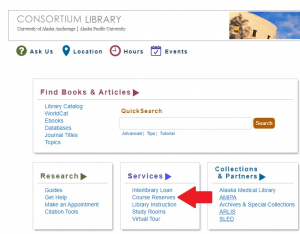The Consortium Library subscribes to a host of high-quality peer reviewed online articles available through online databases, accessible both on and off campus with your student log in. These resources are useful for academic research and modern reviews of both historic and contemporary issues, including everything from scholarly journals to Sanborn Maps. So, it’s easy to forget there are reputable free online sources too. Project Gutenberg and Muse, both listed on the library’s database page, have legally digitized materials that either no longer have active copyrights in the U.S. or that have been paid for through grants. But what kinds of materials do these databases have and what are they useful for? Here’s more information about each site, from their own homepages.
Project Gutenberg is a library of over 60,000 free eBooks. Choose among free epub and Kindle eBooks, download them or read them online. You will find the world’s great literature here, with focus on older works for which U.S. copyright has expired. Thousands of volunteers digitized and diligently proofread the eBooks, for enjoyment and education.
No fee or registration! Everything from Project Gutenberg is gratis, libre, and completely without cost to readers.
No special apps needed! Project Gutenberg eBooks require no special apps to read, just the regular Web browsers or eBook readers that are included with computers and mobile devices. There have been reports of sites that charge fees for custom apps, or for the same eBooks that are freely available from Project Gutenberg. Some of the apps might have worthwhile features, but none are required to enjoy Project Gutenberg eBooks.
-Project Gutenberg, https://www.gutenberg.org/, February 12, 2020.
Project MUSE offers open access (OA) books and journals from several distinguished university presses and scholarly societies. Through our open access hosting programs, we are able to offer publishers a platform for their OA content which ensures visibility, discoverability, and wide dissemination. These books and journals are freely available to libraries and users around the world.
Features of OA books and journals on MUSE
- Search and browse using the same tools for all MUSE content
- Appear in search results with content already owned by libraries
- Require no login or registration for access
- DRM-free, with unlimited downloading and printing
OA Books on MUSE
Books are made open access on MUSE through a variety of funding initiatives, including Knowledge Unlatched, NEH Humanities Open Book grants, TOME, and individual publisher programs.
MUSE Open, an initiative supported by a grant from the Mellon Foundation, enables Project MUSE to distribute selected OA books in browser-native HTML5 format, with enhanced functionality. Many other books are available OA as PDF files. The publishers of the books determine the licensing terms under which the books are made available.
Books may change their status on MUSE from paid access to OA, at the request of the publisher. Some books previously sold in collections may become OA; these titles will be delivered with their original collection(s) but are no longer included in the pricing for future sales.
OA Journals on MUSE:
- Constitutional Studies
- Journal of Appalachian Health
- RSF: The Russell Sage Foundation Journal of the Social Sciences
- Southeast of Now: Directions in Contemporary & Modern Art in Asia
- Sungkyun Journal of East Asian Studies
-Project Muse, https://muse.jhu.edu/, February 12, 2020.

